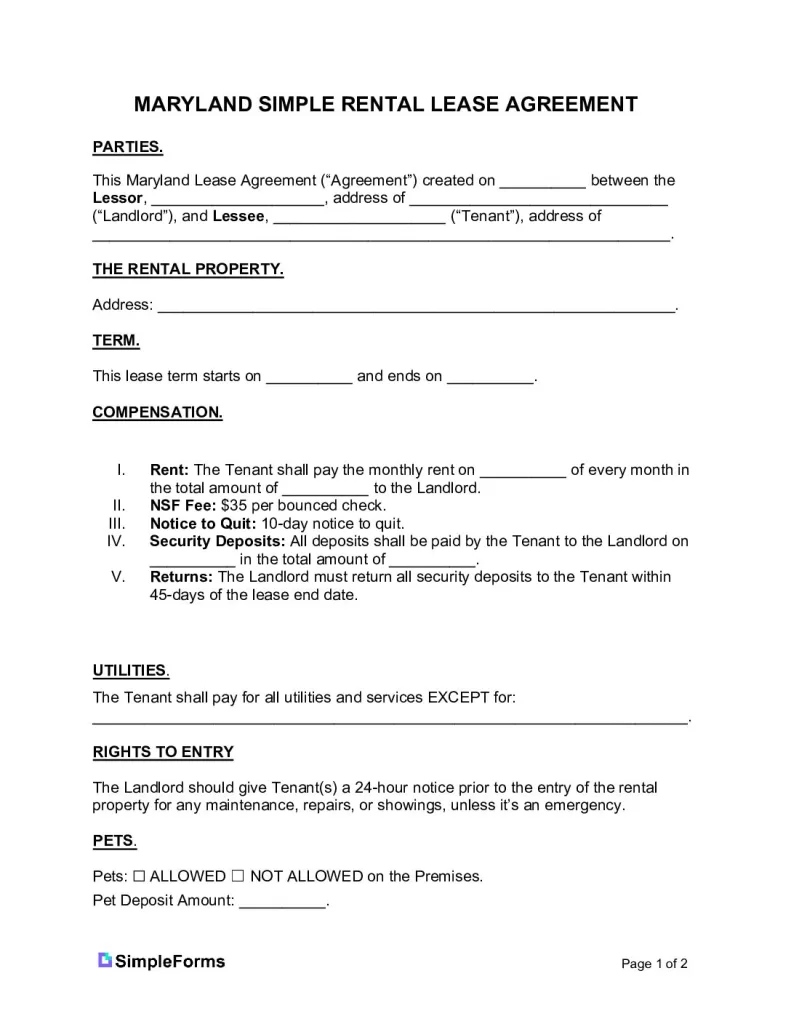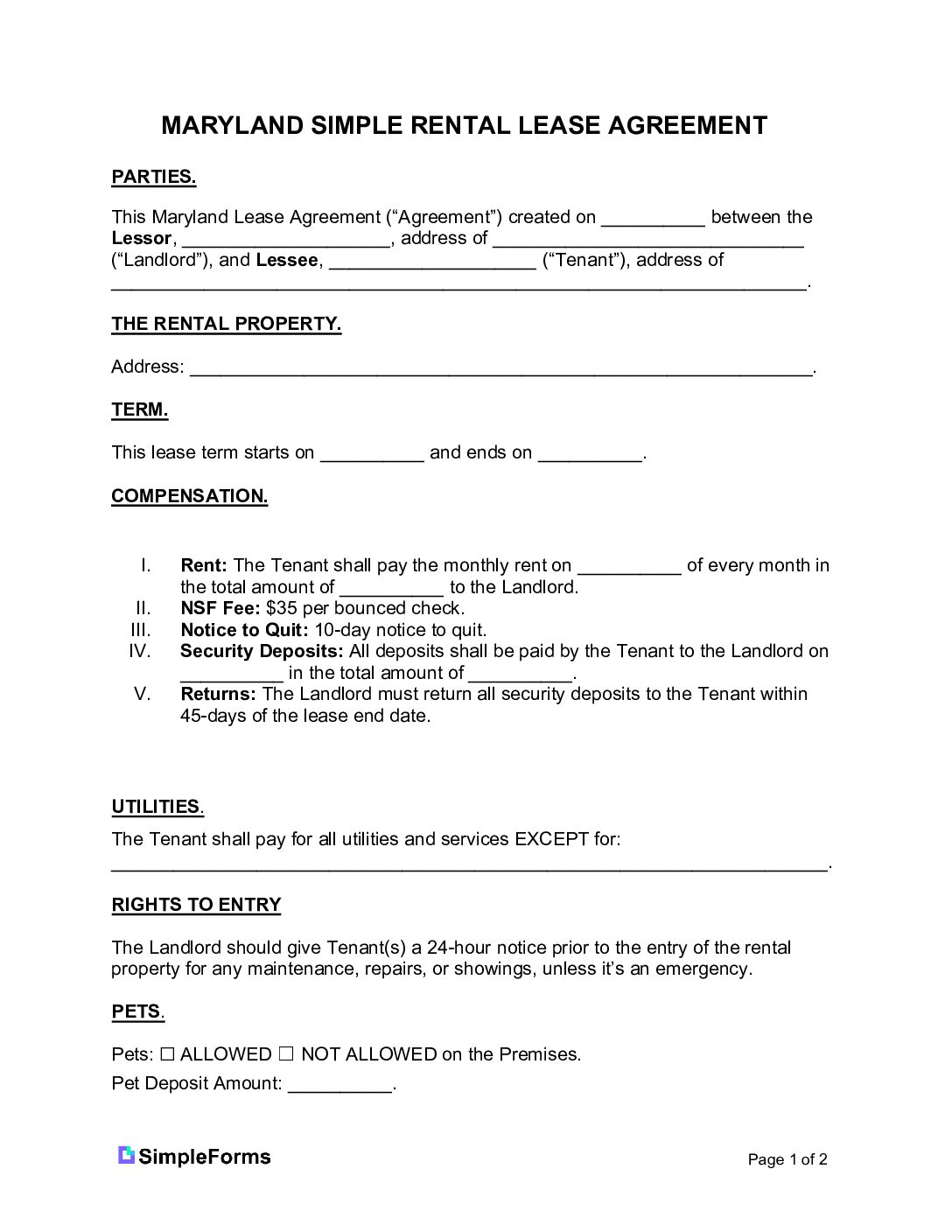A Maryland rental lease agreement is a legal contract between a Landlord and Tenant for renting residential property. After the tenant approves the space, both parties negotiate rent and responsibilities during the lease.
Required Disclosures
- Agent/Landlord Identification – Landlords and anyone authorized to enter the property must be identified.
Lead-Based Paint Disclosure – Landlords of homes built before 1978 must disclose potential lead hazards to tenants. - Move-in/Move-out Checklist – Tenants have the right to request a move-in inspection with their landlords, during which both parties can make a written list of any damages present in the dwelling unit at the start of the tenancy. To exercise this right, the tenant must send a certified mail request within 15 days of moving in.
- Habitability – The lease agreement should contain a statement that guarantees the habitability of the property, and outlines the tenant’s responsibility for utilities like water, gas, electricity, and any necessary repairs.
- Ratio Utility Billing System Disclosure – Landlords who employ a ratio utility billing system to charge tenants for utilities are required to adhere to the disclosure mandate. However, that this regulation does not extend to rental properties that are classified as condominiums or cooperative projects.
- Security Deposit Receipt –A receipt listing tenant’s deposit and rights.
Source: § 8-210(a)(1), § 8-203.1(a), § 8-208(c), § 8-212.4, § 8–203(g)(1)
Security Deposits
Maximum Amount – The lessor may solicit a maximum of two months’ rent from a new lessee.
Returning – When a tenant moves out of a rental property, the landlord must return the tenant’s security deposit within forty-five (45) days, minus any deductions that are itemized and supported by a detailed statement of costs and additional documentation identifying the materials or services provided by the landlord.
Source: § 8–203(b)(1)
Grace Period
As per the lease agreement, the rent must be paid on the specified due date. In case the rent payment is delayed, a late fee may be charged or an eviction process may begin. If the rent is not paid on time, the landlord can choose to issue a 10-day notice for the tenant to vacate the premises.
Source: § 8–401
Late Fees
Maximum Penalty – Maximum Penalty for violating is 5% of monthly rent. For weekly rentals, penalty can exceed $3/wk but not $12/mo.
NSF Fee – A fee of up to $35 is permissible for dishonored checks.
Source: § 8-208(d)(3), § 15-803(a)
Right to Enter
In the jurisdiction of Maryland, there exists no legislation that specifically addresses the rights of Landlords to access their Tenants’ property. It is recommended that landlords provide written notification to their tenants in advance, typically between 24-48 hours, and schedule any visits during standard business hours, which typically span from 9:00 AM to 5:00 PM.
Source: § 8-216

